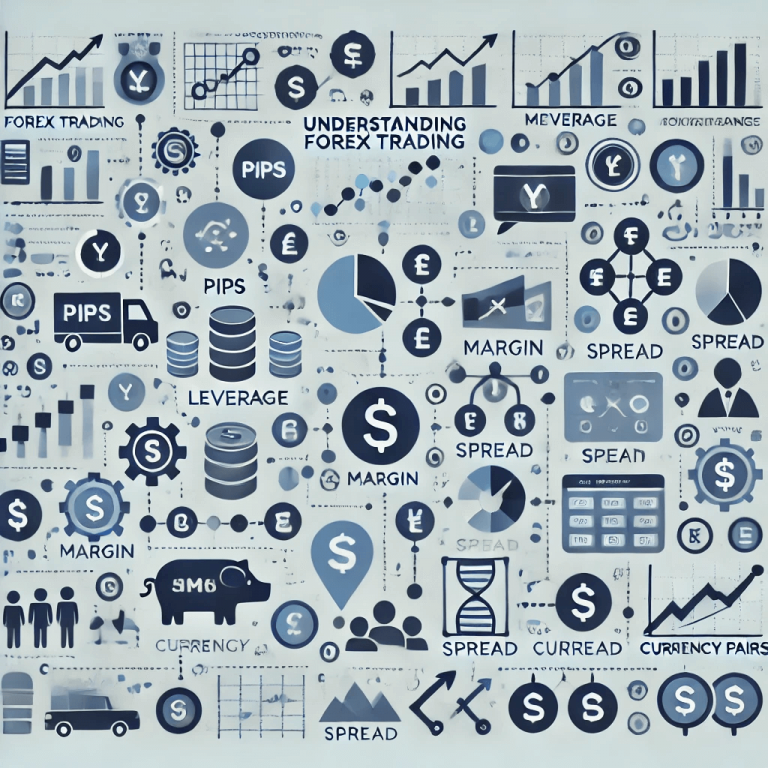Day trading, i.e. intraday trading, has gained popularity among active market participants, especially over the past decade. The development of technology, rapid access to information, and dynamic trading platforms have enabled real-time investment decisions. However, it is worth evaluating exactly what day trading entails, as well as the benefits and risks it involves.
Table of Contents
- What is Day Trading?
- Characteristics of Day Trading
- Day Trading Tools and Strategies
- Advantages of Day Trading
- Disadvantages and Risks of Day Trading
- Day Trading vs Other Investment Styles – A Comparison
- How to Mitigate Risk in Day Trading?
Key Information
- Day trading involves executing trades that are closed before the end of the trading session.
- The strategy is primarily based on technical analysis and intraday data.
- Profits are modest on an individual basis, but cumulatively they can yield attractive results.
- It requires high concentration, rapid response times, and effective stress management skills.
What is Day Trading?
Day trading involves executing trades that are closed before the end of the trading day. The goal of this strategy is to capitalize on short-term price movements of assets – whether they are stocks, futures contracts, currencies, or cryptocurrencies. A key element is the absence of overnight positions, which helps to mitigate the risk associated with price gaps occurring between trading sessions.
Characteristics of Day Trading
Day trading is characterized by a large number of transactions executed within a single day. Traders open positions for several minutes, and sometimes even seconds, which requires precise decisions and rapid reactions to changing market conditions. Profits are usually small on a per-trade basis, hence accumulating them throughout the day is crucial. According to the International Monetary Fund, the average volatility in day trading is approximately 1.2% per day (Source: IMF, IMF).
Due to the intensity of trading, day trading requires near-constant monitoring of charts, quotes, and macroeconomic announcements. A high level of concentration is indispensable to effectively identify market opportunities and avoid losses resulting from sudden trend changes.
Day traders base their decisions primarily on technical analysis. Intraday data, including short interval price charts (e.g. 1-minute, 5-minute), play a crucial role. Candlestick patterns, support and resistance levels, trendlines, and various oscillators are utilized.
Day Trading Tools and Strategies
Among the most commonly employed strategies in day trading are:
- scalping – involves executing a high number of very short-term trades with minimal profit, often lasting only a few seconds;
- breakout trading – is based on capitalizing on moments when key price levels are broken, often signaling a dynamic market move;
- mean reversion – assumes that the price will revert to the average after a temporary deviation, which is used in the case of highly volatile assets.
For day traders, high market liquidity is of key importance, meaning the ability to execute transactions easily without significant differences between bid and ask prices. Volatility is equally important, since only under dynamic market conditions is it possible to achieve profits over short time intervals.
Effective trading requires specialized tools:
- trading platforms with the ability to create real-time charts and quickly place orders;
- macroeconomic calendars, providing information on upcoming events that may impact the markets;
- technical indicators such as RSI, MACD, moving averages, or Bollinger Bands, which assist in assessing the market situation.
| Strategy | Characteristics | Duration |
|---|---|---|
| Scalping | High number of trades, minimal profits | A few seconds to a few minutes |
| Breakout Trading | Capitalizing on a break through key price levels | A few minutes to an hour |
| Mean Reversion | Price reverting to the average | A few minutes to an hour |

Advantages of Day Trading
Rapid Profit Realization
One of the main advantages of day trading is the ability to achieve profits in a very short period. Profits can be generated even within a single trading session, without the need to hold positions for an extended period. For many traders, this represents an attractive alternative to long-term investments, where profits often materialize only after several months.
Additionally, the absence of holding positions overnight eliminates the risk associated with price gaps that can occur between trading sessions, for example, as a result of unexpected political or economic events.
Flexibility and Independence
Day trading offers great flexibility in work organization and a relatively low entry threshold, making it accessible to a wide range of market participants. Trading is conducted via the internet, which allows working from any location, regardless of geography. This form of activity particularly appeals to individuals seeking professional independence.
Compared to positional trading, day trading may require a smaller initial capital. Some strategies, such as scalping, allow trading with minimal funds, although this is usually associated with greater risk and the need to use leverage.
Frequent Exposure to Investment Opportunities
The dynamic nature of financial markets generates numerous investment opportunities throughout the day, which is a significant advantage for active traders. High volatility and liquidity in the markets, particularly during specific trading session hours (e.g., the opening of the New York or London stock exchanges), facilitate frequent trading. OECD data indicates that day trading transactions have increased by 25% over the last decade (Source: OECD, OECD). Day trading also allows for rapid responses to emerging macroeconomic information, company financial reports, or unexpected political events, which can provide profitable opportunities.
Disadvantages and Risks of Day Trading
High Level of Stress and Pressure
One of the greatest challenges that day traders face is the mental strain resulting from the dynamic nature of the market. Immediate decision-making is required, along with a high level of emotional resilience. Even a brief hesitation can result in an unfavorable financial outcome. Dr. Emily Thompson, an international expert, remarks that “day trading requires not only precise analysis but also extraordinary mental resilience” (Source: Bloomberg). Prolonged exposure to stress, due to continuously monitoring positions and rapid price changes, can lead to mental overload and, ultimately, professional burnout.
Transaction Costs and Commissions
Day trading involves a very high number of trades executed within the day, which directly impacts costs. Each operation is subject to broker commissions, and additional fees may arise from spreads and slippage, i.e. the difference between the expected and the actual execution price. Although individual fees may seem minor, their cumulative effect over time can significantly reduce the profitability of the investment strategy.
High Capital Risk
Day trading, especially among inexperienced individuals, can lead to a rapid loss of capital. A common mistake among novices is overtrading, i.e. taking an excessive number of trades, often without a clearly defined plan. The failure to use protective orders (stop loss) further increases the risk of significant losses. Lack of proper substantive and emotional preparation can mean that even individuals with substantial capital quickly find themselves out of the market.
Day Trading vs Other Investment Styles – A Comparison
Financial markets offer a variety of investment styles that can be tailored to one’s preferences, experience level, and available time. Day trading is just one possibility, alongside approaches such as swing trading or positional trading. Each of these strategies differs in terms of position holding duration, frequency of trades, time commitments, and risk level.
For example, swing trading involves holding positions for several days to a few weeks in order to capitalize on larger price movements. Unlike day trading, it is not limited to a single trading session. In swing trading, decisions are made based on a broader technical analysis and are often assisted by fundamental analysis. Traders following this approach do not need to monitor the market continuously throughout the day, making it more accessible for professionals with regular working hours. Day trading, on the other hand, requires constant attention and engagement, with profits based on frequent, small price moves. The risk is concentrated over a short period, whereas swing trading carries the risk associated with holding positions overnight.
Positional trading, on the other hand, is a long-term approach where investors hold positions for several weeks to even several months or years, relying on significant price changes driven by economic fundamentals. In this style, investment decisions are primarily based on fundamental analysis, which includes macroeconomic data, company financial reports, and sector trends. Day trading, meanwhile, is almost exclusively based on technical analysis and intraday data. It offers greater flexibility and the ability to react quickly, but it also requires significantly more time, engagement, and stress management skills.
How to Mitigate Risk in Day Trading?
Mitigating risk is one of the most important elements of successful day trading. Even the best strategy can prove ineffective over the long term if it is not accompanied by an appropriate capital management system. A responsible approach to risk not only protects against losses but also increases the chances of long-term profitability. Below are some proven methods that help reduce risk in intraday trading.
One of the fundamental principles of capital management in day trading is limiting the risk per trade. According to this rule, the risk of loss should not exceed 1–2% of the total investment capital. Such a limit helps avoid significant losses even during a series of unsuccessful trades. For example, with a capital of 10 000 PLN, the maximum loss on a single trade should not exceed 100–200 PLN.
Position size should be adjusted to the current market volatility and risk level. In conditions of increased volatility, opening large positions can lead to rapid losses, so it is advisable to reduce them. Technical indicators such as ATR (Average True Range) are helpful in determining position size as they allow the calculation of the average price movement range for a given instrument.
Using automated orders is also one of the cornerstones of effective risk mitigation. A Stop Loss order limits losses by automatically closing a position once a predetermined loss level is reached. A Take Profit order secures gains by closing the position upon reaching a pre-set price level. Pending orders (e.g., buy stop, sell limit) allow traders to plan market entries without the need for constant chart monitoring, reducing the risk of emotionally driven decisions.
Analyzing historical data and maintaining a trading journal are additional effective methods for enhancing discipline and improving strategy efficiency. Backtesting allows for assessing the effectiveness of a trading strategy on historical data. While it does not guarantee future success, it helps identify the strengths and weaknesses of the system. A trading journal enables systematic tracking of results, analyzing mistakes, and drawing conclusions, which contributes to skill development and greater control over risk.
| Method | Description |
|---|---|
| Limiting Risk per Trade | Not exceeding 1–2% of capital on a single trade |
| Stop Loss / Take Profit | Automatically closing a position at a specified loss or profit level |
| Backtesting and Trading Journal | Analysis of historical results and systematic monitoring of progress |

Day trading is a dynamic form of investing that attracts both beginners and experienced market participants. It is characterized by a high frequency of transactions, a short time horizon, and the need for quick decision-making. For some, it represents an attractive path to earning profits in a relatively short period, while for others, it may be a source of stress and financial risk.
Success in day trading is not a matter of chance but the result of a systematic approach, effective risk management, and market analysis skills. Equally important are psychological factors and self-discipline, which determine the sustainability of investment results.
Although day trading provides access to numerous investment opportunities, it is not suitable for everyone. It requires a significant time commitment, continuous knowledge improvement, and a willingness to accept losses. For individuals who prefer less intensive forms of trading, alternatives such as swing trading or positional trading—based on a longer investment horizon and a slower pace—may be more appropriate.




